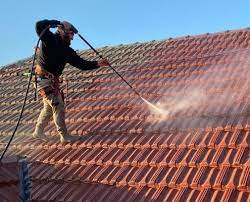Introduction
Painting a residential property can be a transformative experience, whether you’re refreshing a tired interior or giving a home’s exterior a vibrant new look. However, to achieve professional results and ensure client satisfaction, residential painters must possess both skill and knowledge. In this blog, we’ll explore ten essential tips for residential painters, covering everything from preparation to finishing touches.
Residential Painters: Preparation is Key
Before dipping your brush into paint, thorough preparation is essential. This includes cleaning surfaces, repairing any damage such as cracks or holes, and sanding rough areas. Properly prepared surfaces ensure better paint adhesion and a smoother finish. and before that know tips for residential painters to enhance their craft and deliver trusted painting solutions to clients.

Use High-Quality Materials
Investing in high-quality paints, primers, and brushes can make a significant difference in the outcome of your project. Quality materials not only provide better coverage and durability but also contribute to a more professional finish.
Prime Before Painting
Priming before painting is crucial for achieving a smooth, long-lasting finish. It seals surfaces, enhances adhesion, and ensures paint durability. Priming surfaces before painting is crucial, especially for new or bare surfaces and areas with stains or discoloration. Primer helps seal porous surfaces, improves paint adhesion, and enhances color consistency.
Choose the Right Paint
Choosing the right paint is crucial for successful home projects. Consider factors like color, finish, and quality to achieve desired results and lasting beauty. Selecting the appropriate type of paint for each surface is essential for achieving optimal results. Consider factors such as sheen level (e.g., flat, satin, semi-gloss), durability, and suitability for interior or exterior use. Consult with your client to determine their preferences and needs.
Practice Proper Technique
Mastering fundamental painting techniques such as cutting in, edging, and rolling can significantly impact the final result. Take the time to practice these techniques and ensure consistency throughout the project.Whether you’re wielding a brush or a roller, the way you apply paint can make a significant difference in the final result. By focusing on proper technique, such as maintaining a steady hand, controlling brush pressure, and applying even strokes, painters can achieve smoother finishes and more professional-looking results. Regular practice and attention to detail are key to honing these skills and becoming a proficient painter.
Maintain a Clean Workspace
A tidy workspace not only improves efficiency but also ensures a professional appearance. Keep your painting area organized, protect floors and furniture with drop cloths, and clean up spills promptly to avoid unnecessary mess and damage.
Apply Thin Coats
When applying paint, remember that multiple thin coats are preferable to a single thick coat. Thin coats dry more evenly, reduce the risk of drips and runs, and result in a smoother finish.
Proper Ventilation is Essential
Whether painting indoors or outdoors, adequate ventilation is crucial for both your health and the quality of the paint job. Ensure proper airflow by opening windows and using fans, particularly when working with solvent-based paints or in confined spaces.
Pay Attention to Weather Conditions
When painting exteriors, be mindful of weather conditions such as temperature and humidity. Avoid painting in extreme heat or cold, as it can affect paint drying times and adhesion. Additionally, check the weather forecast to prevent unexpected rain or wind that could ruin your work.
Don’t Rush the Drying Process
Patience is key when it comes to allowing paint to dry properly. Rushing the drying process can lead to smudges, smears, or surface imperfections. Follow manufacturer recommendations for drying times and avoid touching freshly painted surfaces until they are completely dry.
Conclusion
Residential painting requires more than just a steady hand and a brush. It demands careful preparation, attention to detail, and a commitment to quality craftsmanship. By following these ten essential tips, residential painters can elevate their skills, achieve superior results, and exceed their clients’ expectations. So, pick up your brush, embrace these techniques, and paint with confidence, knowing that you have the knowledge and expertise to transform any residential space.







